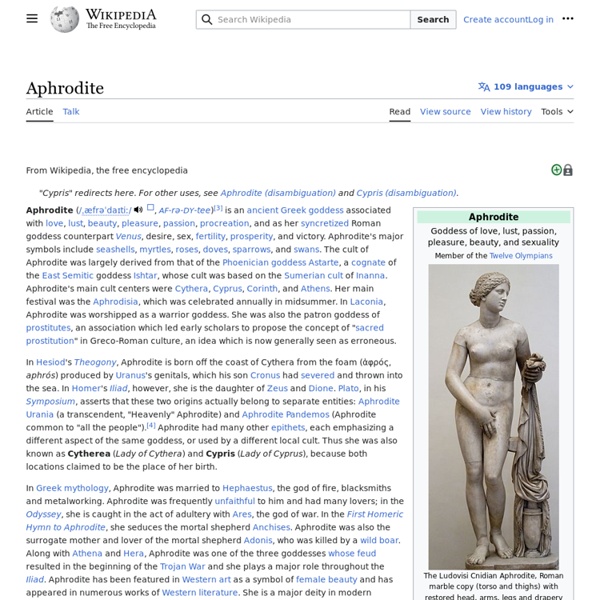Homer, The Iliad, Scroll 13
Scroll 13 Now when Zeus had thus brought Hektor and the Trojans to the ships, he left them to their never-ending toil [ponos], and turned his keen eyes away, looking elsewhere towards the horse-breeders of Thrace, the Mysians, fighters at close quarters, the noble Hippemolgoi, who live on milk, and the Abians, the most just [dikaioi] of humankind. He no longer turned so much as a glance towards Troy, for he did not think that any of the immortals would go and help either Trojans or Danaans. But King Poseidon had kept no blind look-out; he had been looking admiringly on the battle from his seat on the topmost crests of wooded Samothrace, whence he could see all Ida, with the city of Priam and the ships of the Achaeans.
Ithaca
Regional unit in Ionian Islands, Greece Ithaca, Ithaki or Ithaka (; Greek: Ιθάκη, Ithaki [iˈθaci]; Ancient Greek: Ἰθάκη, Ithakē [i.tʰá.kɛː]) is a Greek island located in the Ionian Sea, off the northeast coast of Kefalonia and to the west of continental Greece. Modern Ithaca is generally identified with Homer's Ithaca, the home of Odysseus, whose delayed return to the island is the plot of the classical Greek tale the Odyssey. Etymology[edit]
Aphrodite Urania
Statue of the so-called 'Aphrodite on a tortoise', 430-420 BCE, Athens.[1] The most distinctively Western Asian title of the Greek Aphrodite is Urania, the Semitic "queen of the heavens". It has been explained by reference to the lunar character of the goddess, but more probably signifies "she whose seat is in heaven", whence she exercises her sway over the whole world—earth, sea, and air alike. Her cult was first established in Cythera, probably in connection with the purple trade, and at Athens it is associated with the legendary Porphyrion, the purple king. At Thebes, Harmonia (who has been identified with Aphrodite herself) dedicated three statues, of Aphrodite Urania, Pandemos, and Apotrophia (Ἀφροδίτη Ἀποτροφία means "Aphrodite the Expeller", because in this role, she expels lust and evil desires from the hearts of men[11][12]).
Homer, The Iliad, Scroll 14
Scroll 14 Nestor was sitting over his wine, but the cry of battle did not escape him, and he said to the son of Asklepios, "What, noble Machaon, is the meaning of all this? The shouts of men fighting by our ships grow stronger and stronger; stay here, therefore, and sit over your wine, while fair Hekamede heats you a bath and washes the clotted blood from off you. I will go at once to the look-out station and see what it is all about." As he spoke he took up the shield of his son Thrasymedes that was lying in his tent, all gleaming with bronze, for Thrasymedes had taken his father's shield; he grasped his redoubtable bronze-shod spear, and as soon as he was outside saw the disastrous rout of the Achaeans who, now that their wall was overthrown, were fleeing pell-mell before the Trojans.
Vertumnus
We ask you, humbly, to help. Hi, reader in Canada, it seems you use Wikipedia a lot; that's great! It's a little awkward to ask, but this Tuesday we need your help. Time is running out in 2019 to help us.
Aphrodite Pandemos
Aphrodite Pandemos (Ancient Greek: Πάνδημος; "common to all the people"), occurs as an epithet of the Greek goddess Aphrodite. This epithet can be interpreted in different ways. Plato and Pausanias describe Aphrodite Pandemos (Venus vulgivaga or popularis) as the goddess of sensual pleasures, in opposition to Aphrodite Urania, or "the heavenly Aphrodite".[1] At Elis, she was represented as riding on a ram by Scopas.[2] Another interpretation is that of Aphrodite uniting all the inhabitants of a country into one social or political body.
Seduction
Seduction is the process of deliberately enticing a person, to engage in a relationship, to lead astray, as from duty, rectitude, or the like; to corrupt, to persuade or induce into engaging in sexual behaviour. Strategies of seduction include conversation and sexual scripts,[1] paralingual features,[2] non-verbal communication,[3][4] and short-term behavioural strategies.[5] The word seduction stems from Latin and means literally "leading astray.
Hestia
Greek goddess Etymology[edit] Hestia's name means "hearth, fireplace, altar",[2] This stems from the PIE root *wes, "burn" (ult. from *h₂wes- "dwell, pass the night, stay").[3][4][5] It thus refers to the oikos, the domestic, home, household, house, or family.
The Symposium: 180c - 185c
Summary Phaedrus' speech is followed by a number of others that Aristodemus does not recall, and so we arrive at Pausanias. Pausanias points out that there are two kinds of Aphrodite, the goddess of love. First, there is Heavenly Aphrodite, the daughter of Uranus, with whom he associates "Heavenly Love." Second, there is Common Aphrodite, daughter of Zeus and Dione, who is considerably younger than Heavenly Aphrodite, and with whom he associates "Common Love."



